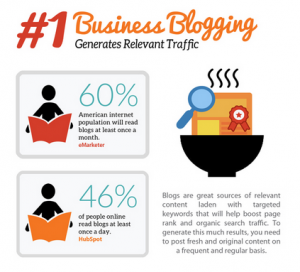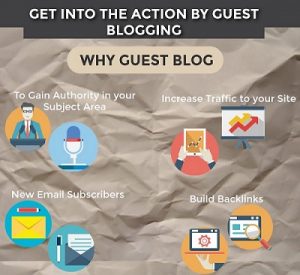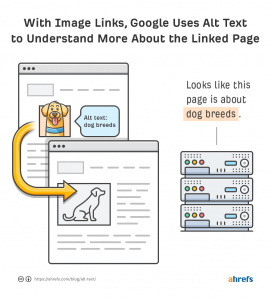Learning SEO can be confusing. Google hardly helps matters because it changes policies and algorithms regularly. However, there is one thing that will always help boost your SEO: blogging. Here are several reasons why blogging is essential for SEO results.
Contents
 Fresh Content Keeps Webpages Relevant
Fresh Content Keeps Webpages Relevant
Update your content! Consistently fill your blog with new information. Doing so will help you build your credibility and authority with search engines.
Through blogging, readers will get to know you, you can show yourself as an expert, and your content becomes worth indexing in Google.
Backlinks to Credible Sites Improve Your Own Credibility
Link schemes to other sites may get you a slap on the wrist from Google, but only if you really don’t know how to link properly. To begin, once you pay for your link, use the nofollow designation, otherwise, you’ll be penalized. A nofollow designation is a tag telling search engines not to count the link in SEO ranking.
The same thing happens if you backlink to sites that have nothing to do with your company. Work only with reputable, quality sites that fit your blog’s niche. Your SEO rankings grow best when you have quality links from well-respected, popular sites.
Keywords and Key Phrases Answer Readers’ Questions
You want to choose unique keywords that will lead searchers to your site, but not so unique that no one thinks to type them into Google. If you choose keywords that are used too often, you won’t get much benefit out of them.
Your best bet with keywords and search terms is to use long-tail keywords, or specific phrases, that people may use when searching. Long-tail keywords narrow searches by being more specific, like saying “longhair purebred Labrador” instead of “dog.” Focus on simply answering questions. People are searching for answers, not keywords. Provide knowledge for those who reach your site.
Your Images and Alt-text Appear in Search Engines
Including images in your blog gives you one more way search engines can find you. Name them according to the keywords or key phrases, and then do the same for the alt-text. The alt-text is meant to describe the image for those who aren’t able to see images on their computer screens. Alt-texts need to be worked carefully for their purposes: information and SEO.
Videos Appear in Search Engines Too!
As with photos, videos give you more dynamic content that you can share with your readers. Be sure you only include videos that serve a purpose. Usually, the best way around it is with proprietary videos since the syndicated content appears over several websites during search results.
Tag your videos with appropriate keywords and phrases to let readers know what those videos are about.
Including your Social Media Boosts Your Blog’s SEO
If you connect your blog to your Facebook, Twitter, and other social media accounts, you give search engines one more thing to find when people look for your company since Google also returns social media search results. It is important to use the search terms throughout titles and meta descriptions. In doing so, your SEO becomes boosted through social media listings.
 Guest Blogging Increases Your Popularity Among Other Loyal Readers
Guest Blogging Increases Your Popularity Among Other Loyal Readers
Working with experienced writers known in their industry helps your own popularity.
For this tactic to work, you must first be vigilant when screening potential bloggers. Interview them, research their backgrounds, and compare their submission to everything they’ve written before to make sure you get truly unique content.
Consistent Blogging Creates Indexed Pages
Google likes fresh content and will reward those who create new content frequently. Indeed, if you include a business blog on your site, you’ll see up to 55% more traffic over companies who don’t blog at all. The reason for this is the indexed pages on Google. Include a minimum of 300 quality words in order for Google to index the pages. Don’t reblog or duplicate content; be fresh and meaningful.
Conclusion: Be Patient, but Expect Results!
Remember, even with the understanding that blogging is necessary to improve SEO results, there is no need to rush. Start with a systematic approach by first answering those burning questions your potential customers have. Plan blogs that will touch on their main points. Results will appear sooner than you can imagine.
For a more in-depth review of these concepts, Google’s quality guidelines can help you learn how to drive traffic to your site and increase your rank among search engines.



